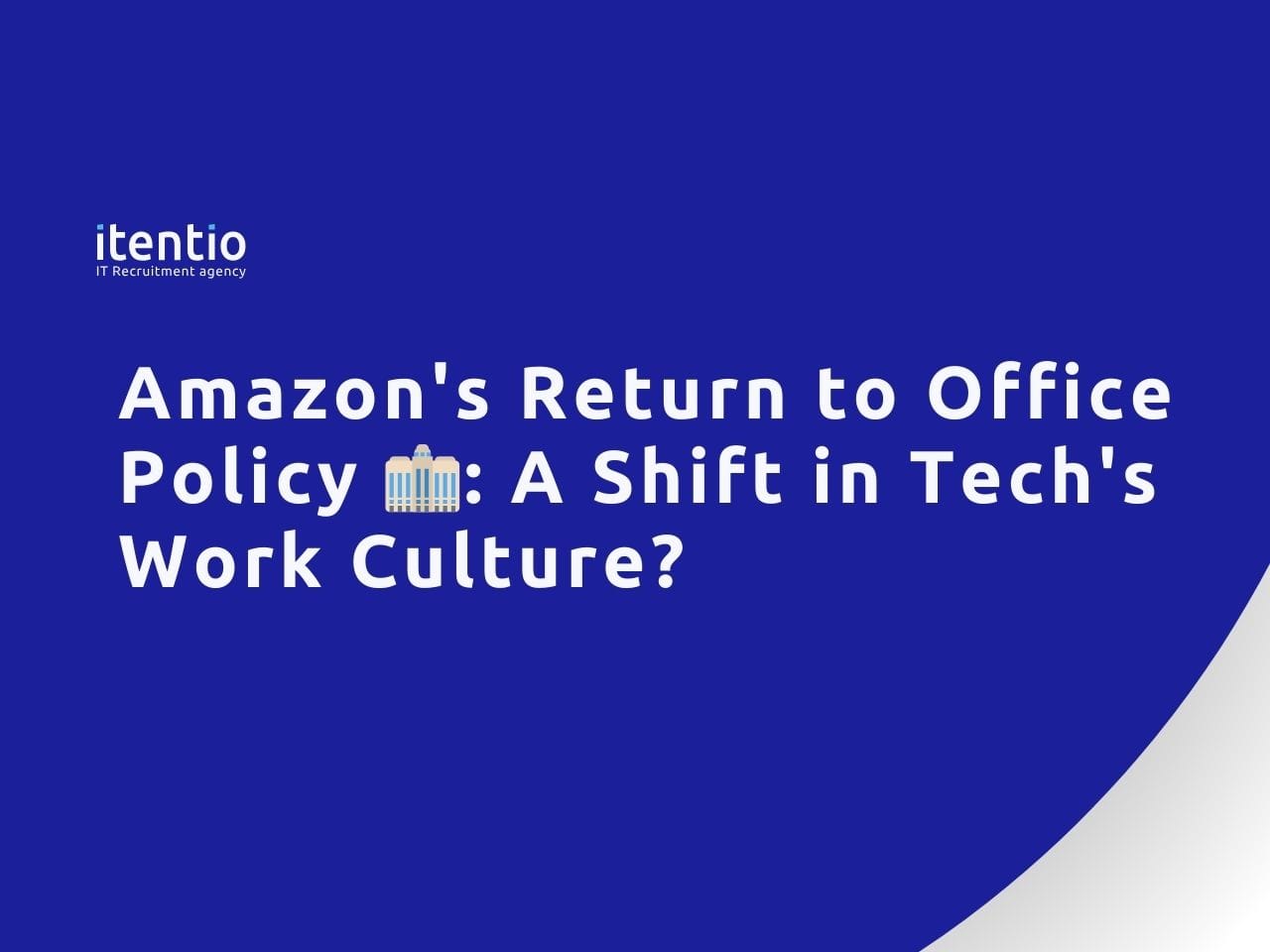In a recent announcement, Amazon CEO Andy Jassy detailed a notable shift in the company’s stance on in-person work, hinting at a broader trend within the tech industry. Starting January 2025, Amazon will require its employees to return to the office five days a week, underscoring the company’s dedication to in-person collaboration. This initiative aims to reinforce Amazon’s culture, boost innovation, and cultivate deeper connections among employees.
This decision marks a significant pivot in an industry that has largely embraced remote work during and after the pandemic. Amazon’s stance underscores the perceived advantages of in-person collaboration, including enhanced mentorship, expedited decision-making, and the cultivation of a culture centered on ownership and innovation. Jassy highlighted that physical presence in the office enhances collaboration, problem-solving, and relationship-building within teams — elements he considers vital for a company of Amazon’s scale and complexity.
However, beyond Amazon, this move could carry broader implications across the tech landscape. The “big five” tech companies — Meta, Apple, Amazon, Netflix, and Google, commonly referred to as MAANG — have been leaders in embracing flexible work policies. Should Amazon’s shift back to full-time office work yield positive results, it could encourage other tech giants to reevaluate their own hybrid or remote-first models.
Amazon’s Return to Office Policy: A Potential Industry Trendsetter
Amazon’s decision could serve as a bellwether for other MAANG companies. In recent years, numerous large tech firms have embraced hybrid or fully remote work models in response to employee preferences and public health guidelines. However, if Amazon — one of the largest tech employers — reverts to full-time in-office work, it could signify a wider shift within the industry. This move may also indicate a reevaluation of how tech companies perceive long-term productivity, collaboration, and innovation when comparing remote operations to in-office environments.
The tech industry, historically recognized for its flexibility and employee-centric benefits, may need to reevaluate the balance between providing workplace autonomy and fostering a culture of innovation grounded in physical proximity. Amazon’s decision could prompt other firms to contemplate similar adjustments, particularly if the advantages Jassy highlighted — such as enhanced mentorship, accelerated decision-making, and more cohesive team dynamics — become apparent in the company’s performance.
Impact of Amazon’s Return to Office Policy on the Tech Workforce
While some employees may favor the flexibility of remote work, the current state of the tech job market could alleviate the risk of substantial employee attrition. The global tech industry has encountered numerous layoffs and hiring freezes, creating a highly competitive landscape for job seekers. Consequently, Amazon’s return-to-office (RTO) mandate is unlikely to provoke a mass exodus of employees, particularly if other major tech companies adopt similar policies. Workers may find themselves with fewer alternatives if the broader trend in the industry shifts toward in-office work.
Furthermore, the company has established a timeline for the transition — effective January 2025 — allowing employees sufficient time to adapt to this new reality. While some staff members may need to make logistical adjustments, such as relocating or modifying childcare arrangements, the gradual nature of the shift is likely to minimize immediate friction.
Opportunities for Smaller and Remote-First Companies
As Amazon and potentially other tech giants transition back to in-office work, remote-first companies and startups may find a golden opportunity to attract top talent seeking flexibility. Many tech professionals have acclimated to and favor remote work for its advantages, including improved work-life balance and the ability to operate from various locations.
Startups and smaller companies, which may lack the resources to maintain large, centralized office spaces, could leverage this situation by offering flexible work arrangements. These organizations may become increasingly appealing to skilled workers, particularly those disenchanted with the prospect of returning to the office full-time. Remote work enables these companies to access a global talent pool and present an alternative for employees who prioritize flexibility over the cultural and collaborative benefits that larger firms are currently emphasizing.
International Perspectives: The Case of Poland
This shift back to in-office work could have international ramifications, particularly in countries like Poland, where many tech workers are employed remotely by U.S.-based firms. The Polish tech scene is thriving, with numerous engineers favoring remote arrangements. If U.S. companies increasingly demand physical presence in the office, this could render remote positions less accessible to these workers.
Consequently, tech professionals in countries like Poland may face diminished job opportunities with U.S.-based companies as these firms revert to in-office models. This shift could result in a recalibration of the global tech workforce, with remote roles increasingly concentrated in startups or smaller firms that uphold remote-first policies.
The Long-term Future of Work
Ultimately, Amazon’s RTO mandate is a part of a broader dialogue regarding the future of work within the tech industry. While the pandemic hastened the adoption of remote and hybrid work models, companies are now exploring various approaches to find an equilibrium between flexibility and in-person collaboration.
Amazon’s position embodies the belief that, given its size and complexity, physical proximity is crucial for fostering innovation, mentorship, and sustaining a robust corporate culture. However, it remains uncertain whether this approach will be effective across the tech industry, which has traditionally led the way in workplace flexibility. For the moment, Amazon’s decision represents a potential turning point in how the world’s largest tech firms navigate the evolving work landscape.
Conclusion: Amazon’s Return to Office Policy is Shifting Tech Industry
Amazon’s return-to-office policy signifies a substantial shift in the tech industry’s approach to post-pandemic work models. By emphasizing in-person collaboration, Amazon aims to bolster its culture and enhance productivity, potentially prompting other major companies to reassess their remote work arrangements. While this decision may not result in immediate resignations, it creates opportunities for smaller, remote-first companies to attract talent. Furthermore, international tech workers — particularly in countries like Poland — may experience the repercussions of this shift as remote positions with U.S. firms become increasingly scarce.
As the future of work continues to unfold, it will be intriguing to observe how companies adapt and what the long-term ramifications of these changes will be for employees, employers, and the global tech workforce.
Are you looking to hire top tech talent in Poland? Whether you seek remote, hybrid, or on-site employees, Itentio IT recruitment is poised to connect you with the ideal candidates. Allow us to assist you in building your team with the flexibility and expertise tailored to your specific needs. Reach out to us today!



